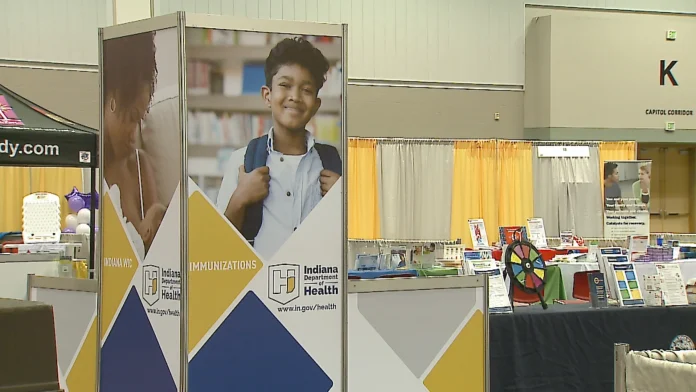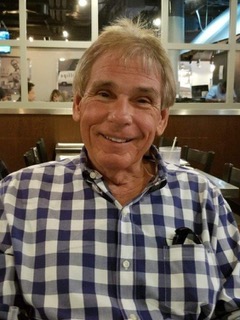Staffing change in the public access counselor’s office creates a backlog of open record decisions
- By Marilyn Odendahl, The Indiana Citizen

Luke Britt, the Hoosier state’s PAC, blamed the slowdown on a change in personnel. The small government agency, he said, had been without a program coordinator since April and no one had been available to go through the process of virtually publishing the decisions issued in response to complaints about public access or open records.
A backlog has developed of 54 advisory opinions and 10 informal opinions. Also Britt and his team are working on about another 10 advisory opinions and one informal opinion.
“It does take time. It’s a little bit tedious,†Britt said, explaining the process for posting the issued opinions. “It’s just one of those things that we prioritized other things over that.â€
A new program coordinator started June 27 and has been working through the to-be-posted pile. To date, 14 advisory opinions are now available on the counselor’s website.
Although the opinions have not been put online, Britt said all the complainants and respondents have received the decisions completed to date along with any accompanying documents.
The office of the Indiana public access counselor was established by statute and charged with giving advice and guidance on issues of open meetings and open records to the general public, government agencies and state officials. According to its annual reports, the PAC receives more than 500 complaints each year.
All complaints receive a response from the counselor. But the office will answer those that present a unique issue or require a deeper analysis with an advisory opinion. In 2023, the PAC has issued advisory opinions about the Indianapolis-Marion County Public Library Board recessing a meeting about the CEO vacancy when the public became disruptive, then reconvening in a conference room and livestreaming the proceedings to the assembly room; the Elkhart County Prosecutor’s Office refusing to release reports, witness statements and other records surrounding a 1985 disappearance and death of an Elkhart woman; and five members of the Delaware County Council discussing council business during a Republican caucus.
Zachary Baiel, president of the Indiana Coalition for Open Government, said timely release of the advisory opinions is critical since they can inform how best to frame an open records request. The published opinions are a “trove of insight†that details the situation that spurred the complaint and includes references to other PAC decisions and court rulings so readers can go further into the issue if they want.
Consequently, Baiel sees the delay in posting the opinions as penalizing everyone and is skeptical of Britt’s explanation for the backlog.
“That’s a pretty weak excuse because it’s not like they’re doing a write-up summary or anything. It’s literally a link with the title,†Baiel said. “You know, upload the file, link to the file, give that link a title, publish, you’re done.â€
‘High-profile analysis’
Since becoming the public access counselor in 2013, Britt has streamlined the process for handling complaints. For public records requests that are very broad and looking more like a legal discovery, he will write a letter advising the complainant to narrow the ask. With other requests, he may flip through his Rolodex of contacts, make a phone call and mediate a solution.
Complaints that “warrant a little closer scrutiny†are assigned a case number. The counselor then sends the complaint to the government agency with a deadline to respond. Once the agency replies, the complainant will have the opportunity to provide a rebuttal or make additional arguments.
Sometimes the agencies will acknowledge a mistake and provide the requested documents. Other times, an agency may submit a legal memo explaining why it denied the public records request.
When a complaint presents newer or complex issues that have not been addressed previously, the PAC crafts an advisory opinion.
“With the opinions that we do published online, … we want to make sure that we’re focusing on issues that request kind of a unique or novel or high-profile analysis,†Britt said, “so we can take a deep dive into that and provide substantive guidance in that way rather than just, ‘Oh, they missed a technical deadline’ or ‘They posted notice 47 hours as opposed to 48’ (hours in advance).â€
Baiel compared filing an open records request to a chess match between the individual and the agency. The advisory opinions can help in developing a strategy for getting the documents.
As an example, he pointed to his 2020 request for campaign finance records for the candidates who ran in the 2019 municipal election in Tippecanoe County. The county clerk replied the request encompassed upwards of 57 individuals and responding in 30 days would be a struggle.
To reduce the burden on the staff, Baiel offered to go to the clerk’s office and inspect the records himself rather than having the employees make him copies. Baiel and the clerk engaged in a back-and-forth but when they could not reach a resolution, he filed a complaint with the public access counselor.
Britt wrote the advisory opinion, Baiel v. Tippecanoe County Clerk, 20-FC-12, which found the clerk and the board of elections were not violating the Indiana Access to Public Records Act. The opinion agreed, in part, with the clerk’s assessment that the request lacked “reasonable particularity,†meaning the request was too broad for the clerk’s office to provide the documents quickly.
In reading through the advisory opinion, Baiel changed his strategy. He submitted a new request and listed the candidates by name which got him the information he was seeking.
“Even though I didn’t win the ‘request issue,’ the real victory was you can make these requests and have them immediately or have the expectation of having them immediately if you specify the candidate,†Baiel said. “The real winning statement in here is ’Just be particular when you request documents.’â€
Opinions from the counselor are nonbinding and do not have to be followed by either the complainant or agency. For the PAC decisions to have “maximum effectiveness,†Britt said his office has to thread a needle by being careful to avoid “playing gotcha†with the agencies but also to not turn the complaint process into an “exercise in futility†by always siding with the government officials.
“It’s important for me to make sure that my opinions are crafted in a way that not only are legally sound,†Britt said, “but provide good governance advice as well.â€
Fueling complaints
Britt estimated by year’s end, his office will have published 80 to 90 advisory opinions. Since 2018, the PAC has averaged 81 advisory opinions annually.
Each year the counselor also publishes informal opinions. Britt described those as an “academic exercise†in which the PAC is asked to provide an interpretation of a statute or give some general guidance. So far in 2023, the office has posted seven, which tops the four published in 2022 and nearly approaches the nine and 10 published in 2021 and 2020, respectively.
To discern what issues might be crossing his desk, Britt keeps an eye on the news.
The fervor boiling around the fear of election fraud brought a flood of complaints about county clerks and election boards in 2022. In particular, the counselor received 17 complaints against 14 counties over “cast vote records”; however, CVRs do not exist, and false rumors about the data being destroyed fueled the complaints.
Britt wrote an informal opinion (which is no longer available on the PAC’s website), noting the ongoing confusion about the information being sought. He ruled his office could not reach a definitive conclusion since “the complainants and respondents cannot agree on the ‘who,’ ‘what,’ ‘when,’ and ‘where.’â€
Now the subjects of many complaints have shifted to reflect the controversy surrounding school curriculum and library books.
“A lot of it is driven by the news cycles, and tomorrow it’ll be something completely different,†Britt said.
Baiel called the public access counselor an “important resource†and said the office is accessible and responsive. He noted he is “kind of bothered†by the case numbers on the advisory opinions not following a sequential order, with some numbers being left out altogether.
Britt explained the gap in numbering is created when the complaint is resolved promptly and an opinion is no longer needed. As an example, he highlighted a complaint about the Indianapolis Police Metropolitan Department not responding to a public records request. When Britt called, the department said the request had fallen through the cracks, then the officers contacted the requester.
The complaint, in instances like that, is then withdrawn because the requester is usually satisfied. Britt and his team will stop the process and not write an opinion since the dispute has ended.
Even so, Baiel said the counselor should at least post every complaint that receives a case number regardless of whether an opinion is issued. The public can learn from those complaints and possibly identify problematic patterns, such as an agency consistently losing track of public records requests.
Often traveling around the state, Britt gives presentations, explaining what the public access counselor does and encouraging everyone to use the resource no matter how small the matter.
Britt acknowledged sometimes the complaints do spark questions within the office. The staff may wonder why an issue was important to a complainant or where some individuals find the time to file the complaints.
But, Britt continued, “We realize that it’s not for us to make a value judgment. They should be civically engaged. Who are we to say what level of engagement is appropriate?â€
This article was published by TheStatehouseFile.com through a partnership with The Indiana Citizen (indianacitizen.org), a nonpartisan, nonprofit platform dedicated to increasing the number of informed, engaged Hoosier citizens.
Marilyn Odendahl has spent her journalism career writing for newspapers and magazines in Indiana and Kentucky. She has focused her reporting on business, the law and poverty issues.










